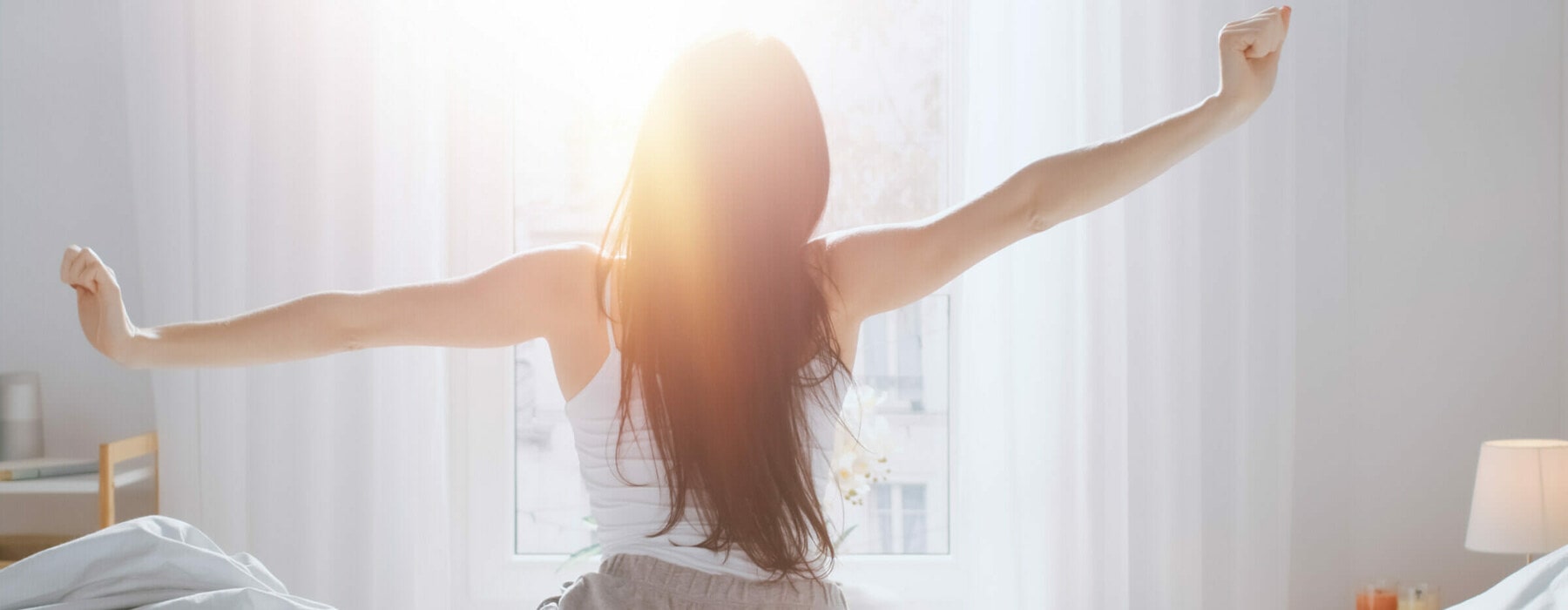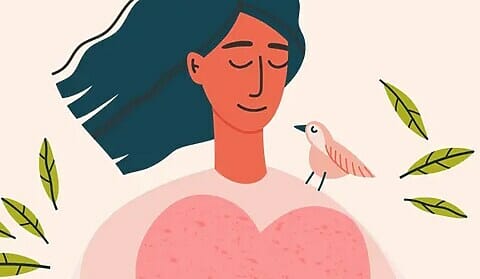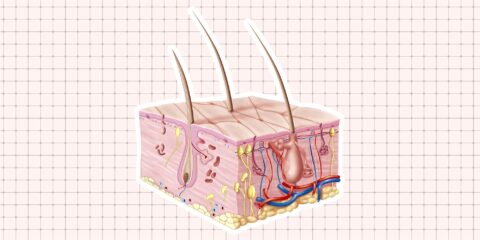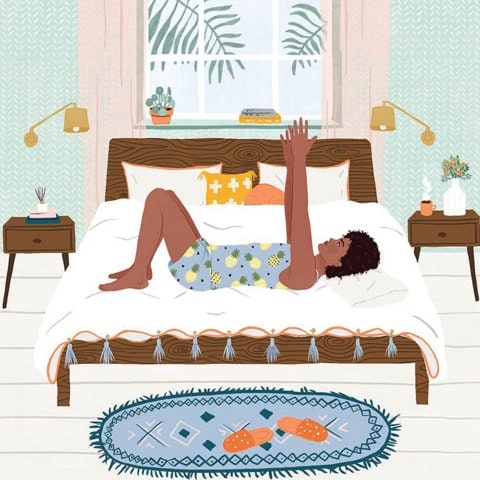Having a partner who snores is a common reality for many women. The good news is there are lots of solutions to help, says sleep psychologist Daniel Ford – from The Better Sleep Clinic.
Solutions include ear plugs, white noise machines, encouraging your partner to try nasal strips and other “stop snoring” products.
“Or simply kicking them out of bed”.
However, loud snoring may not just be a “noise pollution problem”.
It can be an indicator of a sleep disorder that can have serious health implications like Obstructive sleep apnoea (OSA). This is a breathing-related sleep disorder characterised by loud snoring. The snoring sound occurs because while asleep, the muscles in the mouth and throat relax, allowing soft tissues to narrow or block the airway.
When someone has this disorder, the body and brain are repetitively deprived of oxygen while sleeping, leaving the individual feeling very sleepy during the day and potentially leading to future weight, heart and brain complications.
So if your partner (or you for that matter) snores loudly, do not dismiss it as just an annoyance. Encouraging your partner to do a home sleep apnoea test may lead to solving their snoring and potentially save their life.
OSA is around three times more common in men than women. But after menopause women are just as likely to have OSA as men.
Menopause is a time when a lack of sleep can impact many women. Surprisingly though, Ford says studies suggest that menopause is unlikely to cause sleep disturbance for women who have no prior sleep issues, with only 25% of a “good sleeper” group developing sleep disturbances during menopause.
Instead, women with pre-existing sleep disturbances are three times more likely to experience disturbed sleep during menopause.
There are treatments that can help improve sleep disturbances during menopause that do not require medication, including Cognitive Behaviour Therapy (CBT). There is a specific hot flushes focused CBT treatment, CBT for insomnia, exercise, and mindfulness. If you do have sleep disturbances prior to menopause, then a specific sleep-focused treatment such as CBT is likely to be more helpful, says Ford.
Meanwhile, sleep problems can also arise for younger women during pregnancy.
During the last trimester of pregnancy approximately 85% of women will experience sleep disturbances.
Approximately a third of women will experience Restless Legs Syndrome (RLS), a kind of neurological condition characterised by an urge to move the legs, which can be accompanied by an uncomfortable sensation in the limbs.
The good news is that RLS brought on by pregnancy will usually resolve once the pregnancy is over.
If you experience this sleep disrupting condition during pregnancy, Ford recommends that you see your GP and get your iron levels checked. RLS can be brought on by a medical condition or pregnancy, and so increasing deficient iron levels is often the solution.
8 Tips to Get a Better Night’s Sleep from Sleep Psychologist Daniel Ford
1.Exercise regularly. Mindfully move your body regularly – preferably for 30 minutes daily. Exercise in the morning helps to regulate your body clock and boosts your daytime energy. Late afternoon or early evening exercise can aid sleep, although the positive effect often takes several weeks to become noticeable. Try to avoid exercise within 2 hours of bedtime because it may elevate your nervous system activity and interfere with your ability to fall asleep. You can use a device like a Fitbit to keep a record of your movement and show how many active zone minutes that you have hit.
2. Limit stimulants. Try to avoid having any caffeine 6–8 hours before you want to put the lights out. Caffeine disturbs sleep, even for people who do not think they experience a stimulation effect. Individuals with insomnia are often more sensitive to mild stimulants than normal sleepers. Caffeine is found in items like coffee, tea, soft drinks, chocolate, and many over-the-counter medications.
3. Avoid alcohol. Alcohol often promotes the onset of sleep in the first half of the night but this sleep is not ultimately refreshing like real deep sleep, and can contribute to daytime fatigue. As alcohol is metabolised, sleep becomes disturbed and fragmented in the second half of the night. Even a small amount of alcohol from late afternoon onward will impact sleep quality. So, alcohol is a poor sleep aid and should not be used as such. For the best sleep, avoid alcohol. Otherwise, limit alcohol use to small to moderate quantities and the further from sleep time the better.
4.Limit sleep medications. Sleep medications are effective only temporarily. Scientists have shown that sleep medications lose their effectiveness in about 2–4 weeks when taken regularly. Over time, sleeping pills actually make sleep problems worse. When sleeping pills have been used for a long period, withdrawal from the medication can lead to an insomnia rebound. Thus, after long-term use, many individuals incorrectly conclude that they “need” sleeping pills in order to sleep normally.
5. Bedroom environment. A moderate temperature is best (18-19 degrees celsius), and a quiet, dark, and comfortable environment will also inspire a more blissful night’s sleep. Extremes of heat or cold can disrupt sleep. Noises can be masked with background white noise (such as the noise of a fan) or with earplugs. You can darken your bedroom with blackout shades or sleep masks can be worn. Position your clock out of sight since clock watching can increase worry about the effects of lack of sleep. Be sure your mattress fits the Goldilocks test (i.e. it is not too soft or too firm and that your pillow is the right height and firmness for your preference).
6. Eating. It is best to avoid heavy meals soon before bedtime. You should avoid the following foods at bedtime: peanuts, beans, most raw fruits and vegetables (they may cause gas), anything caffeinated (like chocolate), and high fat foods such as potato chips or corn chips. Be especially careful to avoid heavy meals and spices in the evening. Do not go to bed too hungry or too full. Avoid snacks in the middle of the night because awakening may become associated with hunger. A light bedtime snack, such as a glass of warm milk, cheese, or a bowl of cereal, can promote sleep.
7. Avoid taking naps during the day. The sleep you obtain during the day takes away from the sleep you need at night, resulting in lighter, more restless sleep, difficulty falling asleep, or early morning awakening. If you must nap, keep it brief, and try to schedule it before 3pm. It is best to set an alarm to ensure you do not sleep more than 15–20 minutes. If you do have a long nap, “balance the books” by pushing back your bedtime (e.g. 1hr nap during the day = 1hr later to bed).
8. Unwind. Allow yourself at least 30-45 minutes before bedtime to wind down. The brain is not a light switch that you can instantly turn on and off. Most of us cannot expect to go full speed until 10pm, then fall peacefully asleep at 10:10pm. Take a hot bath, read a novel, watch some Netflix, or have a connected talk with your spouse or kids. Find what works for you and make it your routine before bed. Be sure not to struggle with a problem, get into an argument before bed, or do anything else that increases your body’s arousal.
Find more sleep advice from Daniel Ford via https://thebettersleepclinic.com/








